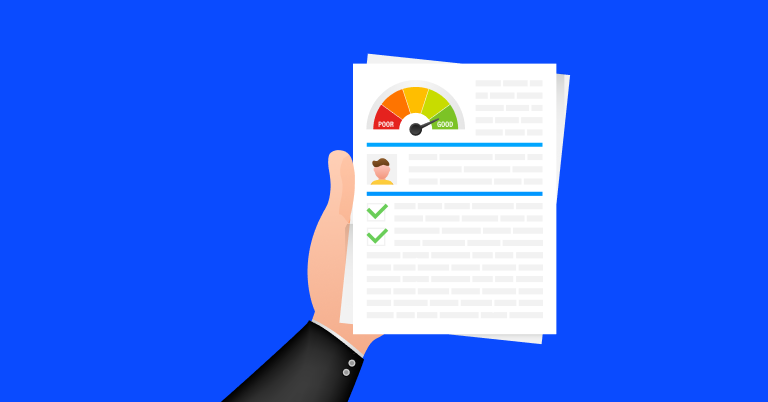Your CIBIL credit score is a crucial metric that determines your financial health and creditworthiness. To maintain a good score, you must be aware of actions that can harm it and those that can boost it. One of the most critical aspects of financial discipline is repaying loans and debts on time and in full. But what happens when you opt for a loan settlement? Does it ruin your CIBIL credit score? Let’s delve deeper into this and explore ways to recover if you’ve already settled a loan.
Loan Settlement vs. Loan Closure
Many people confuse “loan settlement” with “loan closure.” Although they may sound similar, they are fundamentally different and have distinct impacts on your CIBIL credit score. All payment-related activities are reported by lenders to CIBIL, and your credit score is calculated accordingly. Remember, your CIBIL credit score is dynamic and evolves based on your financial behaviour.
What is Loan Settlement?
Loan settlement is an option for borrowers who are unable to repay their loans due to genuine circumstances such as illness, accidents, job loss, or other financial hardships. In this scenario, the borrower negotiates with the lender to settle the loan for a one-time payment, which is typically less than the total outstanding amount. Once the settlement is agreed upon, the loan status is marked as “settled” in the credit report.
While this may provide temporary relief, the “settled” status indicates that you could not repay the debt in full, which has long-term consequences for your creditworthiness.
Impact of Loan Settlement on CIBIL Credit Score
Loan settlement has a significant negative impact on your CIBIL credit score. Here are some key points to consider:
- Lower Credit Score: Settling a loan is viewed as a sign of financial distress, which can lead to a steep drop in your credit score.
- Reduced Creditworthiness: A “settled” status on your credit report can stay for up to 7 years, making it difficult for you to secure new loans, credit cards, or other forms of credit.
- Higher Interest Rates: Even if you manage to secure credit, lenders may offer it at higher interest rates due to the perceived risk associated with your financial history.
What Can Be Done to Remove Loan Settlement Status?
Avoid Loan Settlement:
If you find yourself in financial trouble, the first step is to communicate with your lender. Many lenders offer alternatives such as:
- A payment break or holiday period.
- Restructured repayment terms.
Post-Settlement Recovery:
If you have already opted for loan settlement, here’s how you can recover:
- Repay the Remaining Debt: Contact your lender and pay off the remaining balance. Request a “No Dues Certificate” upon full repayment.
- Update Your Credit Report: Ensure that the lender reports the repayment to CIBIL. You can also raise a dispute on the CIBIL website with supporting documents.
- Practice Financial Discipline: Repay other debts on time, and keep your credit utilization ratio below 35% to gradually rebuild your credit score.
How the MobiKwik App Can Help to improve your credit score
The MobiKwik app offers features that can help users manage their financial health and improve their credit scores:
- Credit Score Check: Monitor your credit score regularly to stay updated and take corrective actions if needed.
- Credit Card Bill Payments: Use the app to set reminders and pay credit card bills on time, ensuring you never miss a due date.
- Loan Repayments: The app also provides easy repayment options with timely reminders, helping you avoid delays that can harm your credit score.
By using MobiKwik’s smart financial tools, you can stay on top of your payments and maintain a healthy credit profile. Download Mobikwik App Now
FAQs on Loan Settlement and CIBIL Credit Score
Can I remove the settlement status from my CIBIL report?
Yes, you can. Repay the remaining debt and request a “No Objection Certificate” (NOC) from your lender. Ensure the lender updates your status with CIBIL. You can also file a dispute on the CIBIL website to revise the status.
Does closing a loan improve my CIBIL credit score?
Yes, closing a loan after timely repayment positively impacts your credit score. It reflects responsible financial behavior, which enhances your creditworthiness.
How to improve CIBIL credit score after loan settlement?
- Repay any outstanding balances on settled loans.
- Pay all future EMIs and credit card bills on time.
- Keep your credit utilization ratio below 35%.
- Regularly check your credit score using tools like the MobiKwik app to track your progress.
How long does a loan settlement stay on the CIBIL report?
The “settled” status remains on your credit report for 7 years. During this period, lenders may perceive you as a high-risk borrower, leading to challenges in obtaining credit or higher interest rates on loans.
Does a one-time settlement affect CIBIL credit score?
Yes, a one-time settlement negatively impacts your CIBIL credit score. It should only be considered as a last resort. Always explore alternative repayment options to minimize the damage to your credit profile.
Conclusion
While loan settlement may seem like an immediate solution during financial distress, its long-term impact on your CIBIL credit score can be severe. Always prioritize timely and full repayment of loans to maintain a strong credit profile. Leverage tools like the MobiKwik app to set reminders, manage payments efficiently, and monitor your credit score regularly to stay financially healthy.



